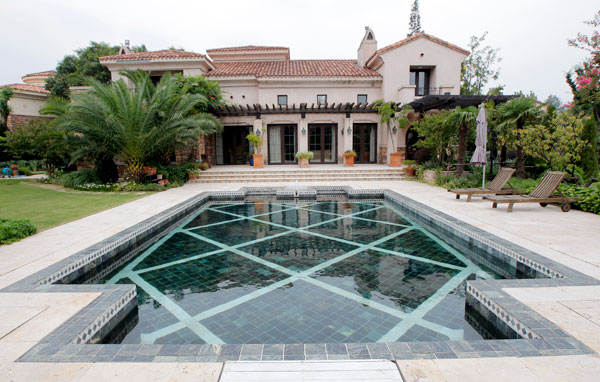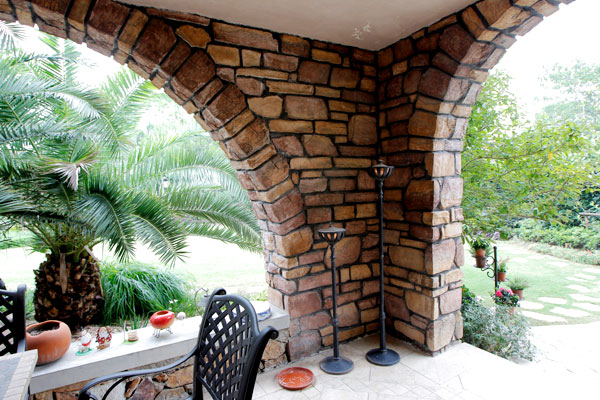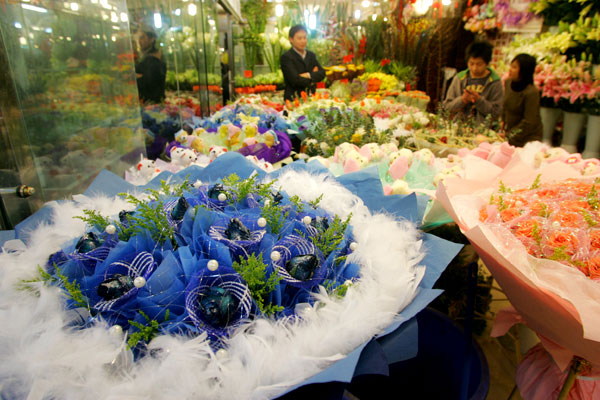Urban Edens
Updated: 2012-10-07 14:59
By Xu Junqian (China Daily)
|
||||||||
 |
|
An EcoG urban garden center in the southwest suburban area in Shanghai. The center covers 8,000 square meters, with 3,000 sq m of botanical garden. Gao Erqiang / China Daily |
 |
|
A corner of an EcoG urban garden center in a southwest suburban area in Shanghai. EcoG plans to open another 30 garden centers in Shanghai by the end of 2014. Gao Erqiang / China Daily |
EcoG plants the seeds of a new model for gardening and seeks to beautify balconies. Xu Junqian reports from Shanghai.
Money doesn't grow on trees, per se, but Ren Fei believes there's plenty of cash in planting urban gardens.
The 38-year-old hopes to offer Shanghai residents their own Edens for 2,000-3,000 yuan ($320-470), which, as he put it, is the price of 1/10 of a square meter of downtown real estate.
"The desire to get back to nature is natural in everyone," Ren explained, on the lawn of one of the four "urban garden centers" he created.
Ren was a senior executive at a domestic bank before he and three partners opened their company EcoG, which stands for "ecological garden", with a 1 million yuan investment in 2003.
He hoped the service "can offer the pleasure of gardening and garden life in a way that has never been experienced in China".
"When people want to hike, they go to Decathlon for outfits; when they decorate, they go to Ikea for furniture and accessories; and when they want to do something with their garden, I want people to come to us," he said.
Most urban gardeners today buy from open-air markets comprised of small individual stalls. But it was these very "flowers and birds markets" that planted the seeds of Ren's boyhood horticultural interest.
The demographics Ren targets include affluent villa owners willing and able to flush out millions of yuan to green up several-thousand-square-meter homes, middle-class apartment dwellers who want to beautify their tiny balconies and self-starters, who can choose from tens of thousands of gardening goods from soil to clippers at the four urban gardening centers.
He explained customers can buy mostly everything they see in the pilot plots, which are the horticultural equivalent to clothing fashion models runway creations.
"To put it simply, I want to be the haute couture tailor, H&M and the textiles supplier of the gardening industry," he added.
In 2011, the company's revenue totaled 50 million yuan, with a growth rate between 30-40 percent every year. More than 70 percent of the income is derived from what Ren called the "haute couture gardening service".
"At first, we only served villa owners with gardens and could afford a minimum budget of 1,500 yuan sq m for garden design," said Ren.
He claimed his clientele include some of the country's most exclusive.
One garment tycoon from Guangdong's provincial capital Guangzhou paid Ren and his landscape designers 10 million yuan to build a hill and river in his garden, he claimed.
Ren said the generous commissions paid by the superrich coupled with his company's attention to details, which are sometimes as small as the width of drains, has equipped the enterprise with the capital and expertise to expand his business to serve a broader demographic.
"The lifestyle changes I saw in the extremely wealthy was extraordinary," Ren said.
"It pulled them from social occasions back to nature and family. Now, I want to venture into the mass market to turn the city's balconies, rooftops or even just windowsills into tiny Edens."
Ren believed that, although the high-end market has been exponentially increasing, it could shrivel if a large retailer were to appear and squeeze profits and expansion opportunities.
So, he opened the first display center in the city's suburban southwest. It's 8,000 sq m, with 3,000 sq m of botanical garden.
Last year, his company started an "improve your balcony" service, which costs thousands of yuan, for middle-class customers.
"Urbanites love flowers and herbs but don't realize they need a garden before they come to us," Ren said.
"We show them what kind of gardening life they can lead, using a space of, say, just 5 square meters."
Ren claimed his business helps customers save money because it cuts out the middleman and transplants seedlings directly from the nursery.
China had more than 3,000 flowers and birds markets that served as "middlemen" at the end of 2011, the China Flower Association reported. They are operated by more than 60,000 florists, and nearly 80 percent are "very small".
EcoG employs more than 200 workers, including 40 designers. It planned to open another 30 garden centers in Shanghai by the end of 2014.
"Our slogan is 'the garden is life'," Ren said.
"That means your living room, bedroom or even your kitchen can be your garden."
Contact the writer at xujunqian@chinadaily.com.cn.
 |
|
Customers select and buy flowers at a market in Shanghai. Gao Erqiang / China Daily |











